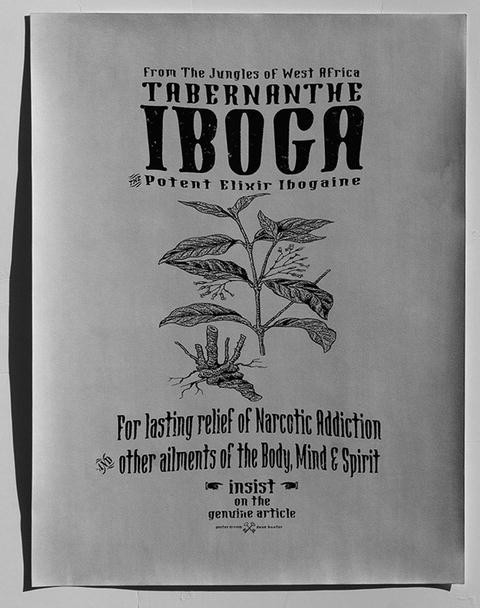
**The Battle Against Addiction: Investigating Ibogaine as a Possible Breakthrough**
The challenge of overcoming addiction is one of the most intricate issues in modern healthcare. For many individuals, especially those facing homelessness, addiction often serves as both a contributing factor and a byproduct of their challenging situations. Conventional rehabilitation methods frequently prove inadequate, with relapses being commonplace. Achieving recovery is often a hard-won and typically temporary achievement. Yet, an alternative strategy may have the capability to disrupt the addiction cycle more successfully. This is where ibogaine becomes relevant.
**A Different Approach to Recovery**
Ibogaine is not a commonly known term, but it is attracting attention in particular recovery communities and new treatment initiatives as one of the most promising—and often misapprehended—resources in addiction treatment. For people like Henry Mauriss, founder of Joshua’s, it signifies a more comprehensive approach to tackling homelessness and addiction at their foundational levels rather than solely addressing superficial symptoms.
**What Is Ibogaine?**
Extracted from the root bark of the iboga plant found in Africa, ibogaine is a naturally occurring psychoactive substance utilized for centuries in spiritual rituals by indigenous cultures. However, in recent years, its potential for treating addiction has caught the interest of neuroscientists, addiction professionals, and alternative medicine advocates.
In contrast to conventional detox medications that alleviate withdrawal symptoms or diminish cravings through substitution—like methadone or Suboxone—ibogaine directly engages the brain’s addiction pathways. Users have reported that a single, carefully regulated dose of ibogaine can wipe out withdrawal symptoms from opioids, alcohol, or stimulants, offering profound emotional clarity and a deeper understanding of the underlying issues contributing to their addiction.
Although ibogaine is not a miraculous solution, it serves as a crucial element in a recovery journey that is often marked by repeated setbacks and ongoing relapses.
**The Limitations of Traditional Rehabilitation**
To grasp the increasing fascination with ibogaine, it is essential to acknowledge the shortcomings of existing addiction therapies. The majority of rehab centers in the United States depend on a mix of 12-step approaches, cognitive behavioral therapy, and medication-assisted treatments. While these methods can be beneficial for some, they often do not meet the needs of those with long-standing, severe addictions, especially individuals struggling with homelessness, trauma, and concurrent mental health issues.
Many people have gone through various treatment programs, detoxed previously, and relapsed, ensnared in a relentless cycle. The offered treatments frequently neglect to address the complete emotional, neurological, and spiritual burden of addiction. Additionally, limitations imposed by insurance often lead to abbreviated treatment periods, putting added pressure on an already taxing process.
This is the reason Henry Mauriss and his team at Joshua’s promote an alternative model—one that integrates innovative strategies, sustained support, and a dedication to holistic recovery.
**Ibogaine within the Joshua’s Framework**
At Joshua’s, ibogaine does not serve as an isolated remedy. It is part of a comprehensive recovery strategy that begins with stabilization, involves closely monitored treatment protocols, and is followed by structured support, community, and job training. The objective is not to replace one quick fix with another but to establish a robust groundwork for the demanding work still to come.
Under professional supervision in selected partner clinics, Joshua’s clients who fulfill medical criteria may receive ibogaine as an element of their detox and rehabilitation journey. The goal is not only to eliminate cravings or prevent withdrawal but to facilitate a space for significant personal change. Participants frequently describe their ibogaine experience as a reset—a method to step away from years of addiction and reassess their lives, choices, and futures with a refreshed outlook.
Once the groundwork is completed, the authentic work commences. Joshua’s then offers job training, housing solutions, mentorship, and ongoing mental health support to guarantee that recovery initiated with ibogaine continues.
**Obstacles and Debates**
Ibogaine is not devoid of difficulties. It is still classified as a Schedule I substance in the U.S., rendering it illegal for use in most treatment facilities. Nevertheless, medically supervised ibogaine therapy is accessible in other countries like Mexico and New Zealand, where it is progressively researched in clinical trials.
There are also safety issues. Ibogaine may pose risks for individuals with specific pre-existing heart conditions, highlighting the vital need for thorough evaluations and medical supervision. No responsible program, including Joshua’s, administers ibogaine without rigorous protocols in effect.
Yet for many individuals on the edge, ibogaine symbolizes hope. It is neither a street drug nor a passing trend. It’s a potent therapeutic tool utilized in supervised settings to assist people in making significant strides towards healing.
**A Pathway to Genuine Transformation**
What makes ibogaine especially impactful in the realm of homelessness is its rapidity and depth. For someone engulfed in addiction, frequently trapped among shelters, emergency rooms, and jails, ibogaine provides a moment of mental clarity and emotional stability that traditional detox methods fail to achieve.
Henry Mauriss succinctly sums this up: “When someone’s life has been collapsing for years